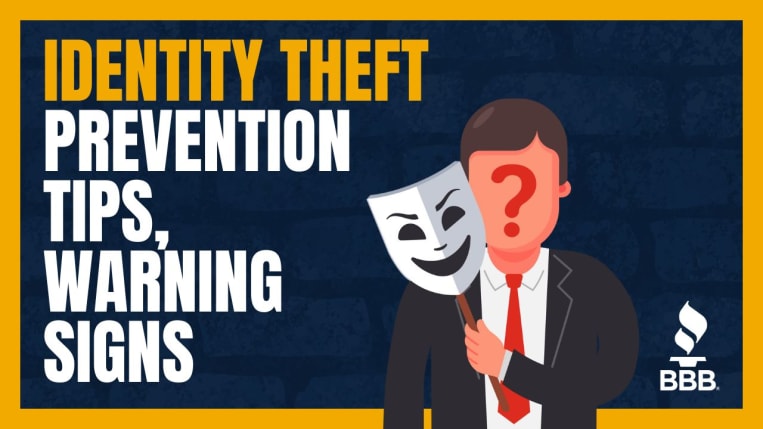
BBB Midwest Plains: What is identity theft and how to prevent it

(BBB Midwest Plains)
Identity theft is a growing concern in our digital age. Understanding what it is and how to prevent it can save you from significant financial loss and stress. BBB of the Midwest Plains recently held a webinar titled "Identity Theft: Prevention tips and warning signs" featuring Paige Korten, a Private Banking Officer at Pinnacle Bank. Here’s a detailed guide on identity theft, its types, and essential tips to prevent it.
1. Understanding identity theft
Definition: Identity theft involves the fraudulent acquisition and use of a person’s private identifying information, typically for financial gain. This information can include a person's Social Security number, date of birth, and other personal details.
2. Common types of identity theft
Types of scams: Identity theft comes in many forms. Here are some common types:
- Phishing: Fraudulent emails or messages pretending to be from legitimate organizations to steal your personal information.
- Tech support scams: Fake tech support claims your device has issues and asks for remote access.
- Work-from-home scams: Offers for high-paying remote jobs that require your personal and banking information.
- Loan scams: Fake payday loans or debt consolidation offers to gather your personal information.
- Lottery and sweepstakes scams: Notifications claiming you’ve won a lottery you never entered, asking for fees and personal details.
- Romance scams: Fake online relationships to gain trust and eventually your money or personal information.
3. How to spot identity theft
Warning signs:
- Unexpected transactions on your bank account.
- Notifications for loans or credit accounts you didn’t apply for.
- Sudden changes in your credit score.
4. Steps to take if your identity is stolen
Immediate actions:
- Report the scam: Use the FTC website to file an identity theft report.
- Contact financial institutions: Inform your bank and credit card companies immediately.
- File a police report: Provide the FTC report to your local police department.
- Notify credit bureaus: Request a fraud alert or credit freeze.
5. Protecting your credit
Credit reports:
- Request your free annual credit report from AnnualCreditReport.com.
- Consider a credit freeze or fraud alert with the major credit bureaus (Equifax, Experian, TransUnion).
6. Strengthening your online security
Best practices:
- Use strong passwords: Create complex passwords and change them regularly.
- Enable multi-factor authentication: Add an extra layer of security to your accounts.
- Monitor your accounts: Regularly check your bank statements and credit reports for unusual activity.
7. Fraud alert vs. credit freeze
Fraud alert:
- Notifies creditors to take extra steps to verify your identity before opening new accounts.
- Stays on your credit report for 90 days but can be extended.
Credit freeze:
- Completely restricts access to your credit report, preventing new accounts from being opened.
- Requires contacting all three credit bureaus and stays in place until you lift it.
8. Preventing identity theft
Proactive measures:
- Never share your passwords or personal information unnecessarily.
- Be cautious with unsolicited messages asking for personal information.
- Regularly monitor your financial accounts and credit reports.
- Use secure methods to store sensitive information, such as encrypted devices or physical storage away from your computer.
9. Useful resources
Important links:
- Annual credit report: AnnualCreditReport.com
- FTC identity theft: identitytheft.gov
- Equifax: equifax.com | 1-800-525-6285
- Experian: experian.com | 1-888-397-3742
- TransUnion: transunion.com | 1-800-680-7289
- BBB Scam Tracker: bbb.org/scamtracker
10. Staying informed
Educational resources:
- Banks never ask that: banksneveraskthat.com - A resource by the American Bankers Association to help identify scams.
- Credit monitoring services: Consider services like IDProtectMe for additional monitoring and alerts.
Conclusion
Preventing identity theft requires vigilance and proactive measures. By understanding the common types of scams, spotting warning signs, and knowing what steps to take if your identity is stolen, you can protect yourself from this growing threat. Stay informed and regularly monitor your accounts to ensure your personal information remains secure.
Still Need Assistance?
Contact Your Local BBB
Your local Better Business Bureau can assist you with finding businesses you can trust. Start With Trust®.
Additional Resources
Central Ohio BBB Business Podcast